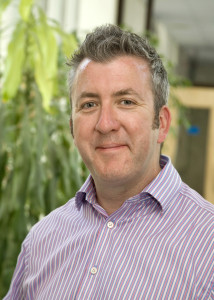 Last month we saw two key messages come through regarding patient safety. The first was the publication of Sir Robert Francis’s “Freedom to Speak Up report.” The second was a report by the Parliamentary and Health Service Ombudsman (PHSO), which found significant variation in the quality of NHS investigations into complaints of avoidable death and avoidable harm. Both reports have generated significant coverage and debate.
Last month we saw two key messages come through regarding patient safety. The first was the publication of Sir Robert Francis’s “Freedom to Speak Up report.” The second was a report by the Parliamentary and Health Service Ombudsman (PHSO), which found significant variation in the quality of NHS investigations into complaints of avoidable death and avoidable harm. Both reports have generated significant coverage and debate.
It will also be 15 years this April since the publication of the report “An organisation with a memory.” This report made a number of key recommendations, which underpin the findings in the two recent reports highlighted above. It stated that “If the NHS is successfully to modernise its approach to learning from failure, there are four key areas that must be addressed. In summary, the NHS needs to develop:
* unified mechanisms for reporting and analysis when things go wrong;
* a more open culture, in which errors or service failures can be reported and discussed;
* mechanisms for ensuring that, where lessons are identified, the necessary changes are put into practice;
* a much wider appreciation of the value of the system approach in preventing, analysing, and learning from errors.”
These messages and ambitions are still current, and sadly still beyond the immediate scope of most NHS organisations.
“Freedom to Speak Up” highlighted how a substantial proportion of health workers are afraid to speak out against unsafe practice, and that many of those who had blown the whistle had been bullied. Government pledges of overhauls to medical and nursing training to make it “rigorous and enhanced” have followed.
Health Education England has recently established the commission on education and training for patient safety, which it intends to use to “make recommendations to ensure that all healthcare staff and, in particular, those in training are fully aware of all aspects of patient safety, including raising concerns and responding to those concerns.”
The organisation has also published “Raising concerns: speaking up about patient safety“—the first of a number of instructional videos, which Health Education England intends to build into a range of resources to assist all staff. This commission is a key component of the educational ambition required to realise the ambitions behind Sir Robert Francis’s recommendations.
Underpinning many of these factors is the thorny issue of organisational culture. One of the key workstreams for the Kent Surrey Sussex Patient Collaborative (KSS PSC) is leadership, culture, and capability. The ability of an individual to speak up about concerns over patient safety is in part based on their own confidence of how they as an individual will be treated by their organisation. The reflections on this are well discussed in the “Freedom to Speak Up” report. Another critical issue is how the information is used to help the organisation develop and learn. Part of the initial work planned by KSS PSC is to engage with a number of organisations and develop a model of assessing and improving workplace culture.
As highlighted above, the PHSO report highlights variation in the quality of investigations. In addition, many organisations are under pressure to increase the volume of incident reporting that occurs. Finally, the recent introduction of duty of candour will greatly increase the volume of investigations individual organisations will be expected to conduct. All of these processes are, of course, vital to ensure that intelligence is gathered. Yet to focus on these areas alone would avoid the key issue, namely embedding the learning that flows from these incidents and investigations.
The key ambition of the KSS PSC is to work collaboratively with all our partners, in all sectors. Through this process we hope to provide a conduit through which we can spread best practice and help all of us to provide the best possible safe care to all our patients. Hence using a “system approach in preventing, analysing, and learning from errors” across a region, and therefore developing a group of organisations with memories.
Tony Kelly is co-director of the Kent Surrey Sussex Patient Safety Collaborative. He is also consultant obstetrician and associate medical director for quality and innovation at Brighton & Sussex University Hospitals.
I have read and understood BMJ policy on declaration of interests and declare the following interests: I am the co-director of the KSS patient safety collaborative. No other conflicts of interest.